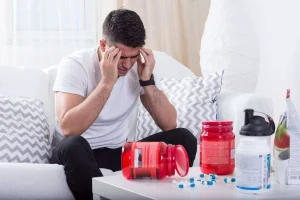How Long Does It Take to Detox from Alcohol? Timeline and More

His passion is helping addicts holistically and through a blend of both western and eastern philosophies. Christina Kuzio has been a Registered Nurse for 39 years – the majority of those years working in a large South San Francisco Bay Emergency Room. For the past 14 years, Christina has been managing the Health and Wellness Department at EAS in Watsonville, CA. Christina has volunteered for many years with Flying Doctors, a humanitarian group that provides health services to underdeveloped areas in Mexico and Central America.
Stress Management
- Alcohol-related brain damage (ARBD) or brain injury (ARBI) are brain disorders caused by long-term, heavy alcohol consumption.They usually affect people between the ages of 40 and 50.
- They help lower activity in your CNS, which is the source of most of the dangerous problems with DTs.
- Your heart rate drops, your blood pressure lowers, your breathing rate decreases and your brain has less activity.
- During this time, your doctor can help you reduce withdrawal tremors with medications.
- Christina is responsible for overseeing the general health of the clients, ensuring that their medical needs are being met, and ensuring that state and local requirements are being met within her department.
- Alcoholics experience a range of symptoms including a deep craving for a drink, or sugar.
There are plenty of simple ways you can also adapt this recipe to keep things fresh and interesting, and to change things up according to your personal preferences. Add the orange juice, lemon juice, lemon rinds, simple syrup, almond extract, and egg white to a cocktail shaker. To begin this alcohol shakes no-ABV amaretto sour mocktail recipe, first you will need to gather the ingredients. You will want a lemon, orange juice, simple syrup, almond extract, egg white, and a maraschino cherry, to garnish. If you’ve got a sweet tooth, a steaming cup of hot chocolate is the perfect drink for you.
Alcohol-Related Brain Damage Can Lead to Shaking

This may prove impossible but, if it can be managed, they may be able to avoid delirium tremens when they eventually stop drinking all together. If you have alcohol use disorder and want to reduce how much you drink or quit entirely, a primary care provider can guide you to resources https://ecosoberhouse.com/ and rehabilitation programs that can help. Many people feel shame or embarrassment asking for this kind of help, but your provider’s job is to help, not to judge. That way, you can reduce your drinking safely and improve your health, well-being and overall quality of life.

How are Alcohol-Related Neurological Diseases Treated?
Staying hydrated throughout detox helps flush toxins from your body, which may lessen shakes, as well as relieve other withdrawal symptoms. You can improve your cellular metabolism by adding some drinks with electrolytes to restore the imbalance caused by alcohol. After detox, continue to drink the recommended daily amount of water to energize body, improve kidney function, and improve bowel function. Treatment may be inpatient or outpatient, and typically includes individual and group therapy, family counseling, alcohol education, 12-step support, and support for physical or psychological needs. Co-occurring disorders are treated at the same time as alcohol recovery treatment.
Detoxing means clearing the alcohol from the body and managing withdrawal symptoms. Although alcohol will clear the body within a few days, cravings, shakes, and other withdrawal symptoms may linger longer. Once the body is free of alcohol, an individual can begin addiction treatment. Alcohol withdrawal is easy to diagnose if you have typical symptoms that occur after you stop heavy, habitual drinking. If you have a past experience of withdrawal symptoms, you are likely to have them return if you start and stop heavy drinking again. There are no specific tests that can be used to diagnose alcohol withdrawal.
The Most Common Mental Health Disorders
A fast-beating heart accelerates blood flow throughout the body by widening blood vessels. Vasodilation of blood vessels, whether from alcohol withdrawal or binge drinking, will make you feel hot, flushed, nervous, and excessively sweaty. If you suffer from alcoholism and are going through alcohol withdrawal, it’s crucial to be aware that alcohol tremors are a potential side effect. Additionally, alcohol tremors may be a symptom of a more serious condition, like delirium tremens, which necessitate immediate medical attention.
Alcohol withdrawal is common, but delirium tremens only occurs in 5% of people who have alcohol withdrawal. Delirium tremens is dangerous, killing as many as 1 out of every 20 people who develop its symptoms. If you have severe vomiting, seizures or delirium tremens, the safest place for you to be treated is in a hospital. For delirium tremens, treatment in an intensive care unit (ICU) is often required. In an ICU, your heart rate, blood pressure, and breathing can be monitored closely in case emergency life-support (such as artificial breathing by a machine) is needed. So, if you have shakes or tremors that materialize 8–30 hours after your last drink, they’re unlikely to be related to DTs.
Alcohol Shakes or Tremors
There are prescribed medications that can help ease the symptoms of alcohol withdrawal, including tremors. Ask your doctor if either benzodiazepines or baclofen may be appropriate to help manage withdrawal symptoms. Uncontrollable shaking, usually in the hands, is a common sign of alcohol withdrawal.

This cancels the feeling of intoxication produced by alcohol and heightens its negative effects to help prevent relapse. A formal diagnosis of alcohol shakes is sometimes referred to as a cerebellar tremor. Related to degeneration of the cerebellum by long-term consumption of alcohol, a cerebellar tremor makes it difficult for a person to complete any type of movement. For example, an alcoholic or recovering alcoholic with cerebellar tremor who tries to push a button or grasp something would be unable to finish the movement because their hand is shaking so badly. If someone believes they may be experiencing alcohol use disorder or are experiencing tremors regularly, they should speak with a healthcare professional.

No Comments